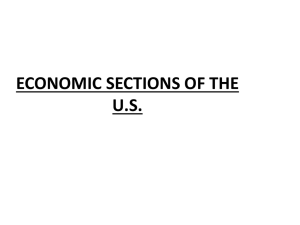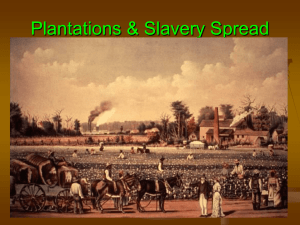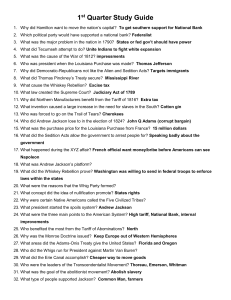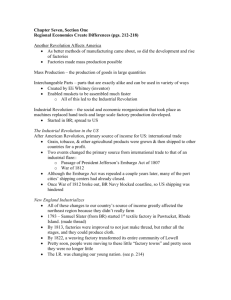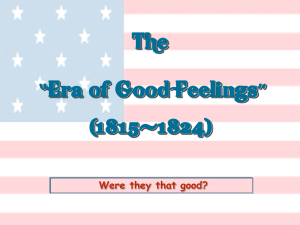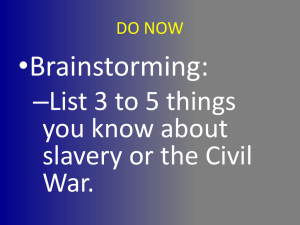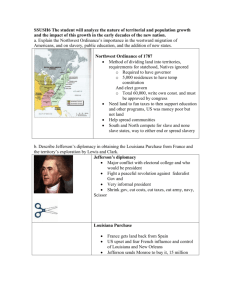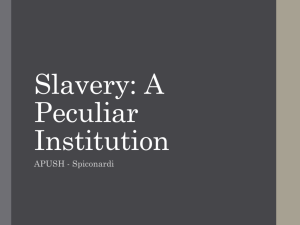Creating a Nation: Beginnings to 1877
advertisement
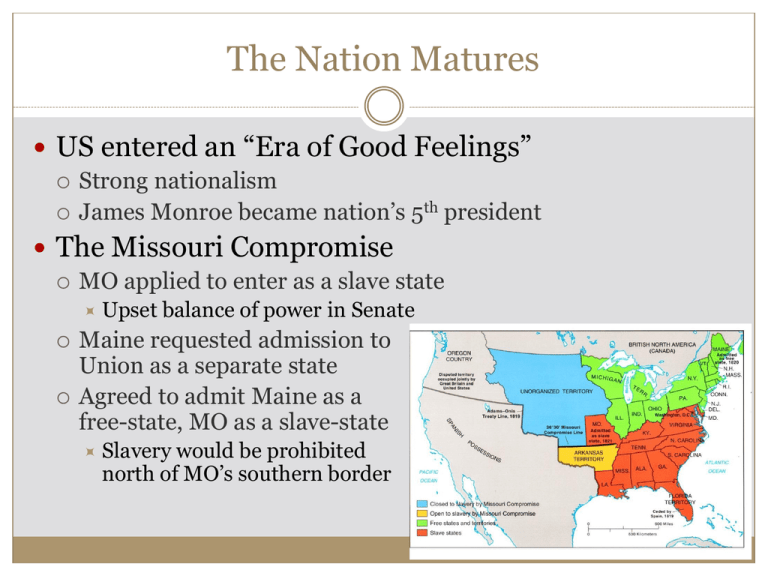
The Nation Matures US entered an “Era of Good Feelings” Strong nationalism James Monroe became nation’s 5th president The Missouri Compromise MO applied to enter as a slave state Upset balance of power in Senate Maine requested admission to Union as a separate state Agreed to admit Maine as a free-state, MO as a slave-state Slavery would be prohibited north of MO’s southern border The Nation Matures American Nationalism Shifted from world affairs to national growth Spain’s colonies were fighting for independence President Monroe proclaimed the Monroe Doctrine Western Hemisphere was closed to European nations 1816 – Rep. John C. Calhoun (SC) introduced Second Bank of United States Power to issue currency and control state banks Tariff of 1816 Protective tariff to raise the price of import Chief Justice John Marshall’s Court McCullouch vs. Maryland Life in the North 1815-1860 many foreigners came to America Some went West, others settled in the cities Fought against immigrants who did not fit the WASP mold Workers began to organize and form unions Prices dropped in 1860, leading to lower wages and poorer conditions Employers did not want to work with them, and courts ruled against them Agriculture remained the leading economic activity Until late 1800s The Land of Cotton Farming was even larger in the South 16% of nation’s manufacturing Thrived on cash crops Tobacco, cotton, rice, and sugarcane Cotton Becomes King Eli Whitney invented the cotton gin Cotton production soared Increased demand for enslaved labor Slavery Slaves were given all types of tasks Abide by Slave Codes Found methods to resist slavery The Age of Jackson Elected president in 1828 Spoils System Wanted ordinary citizens to play a role in government Kitchen Cabinet Growing Rift Passed a large tariff in 1832 South Carolina adopted an ordinance of nullification Jackson dismantled the Second Bank Sent nation in to a Depression Trail of Tears Ordered all Cherokee to a new land with the Indian Removal Act A Reforming Society Temperance Movement to stop the consumption of alcohol Prisons, Asylums, and School Reform Worked on rehabilitating prisoners Recognized mentally handicapped and sent to asylums Established a system of public education for all children Women’s Rights 1848 – Seneca Falls Convention Lucretia Mott and Elizabeth Cady Stanton Declaration of Sentiments and Resolutions Focus on suffrage A Reforming Society Abolitionism Divided the nation Religious groups viewed slavery as a sin Free African Americans took prominent roles Frederick Douglass Sojourner Truth Religious antislavery speeches attracted huge crowds


